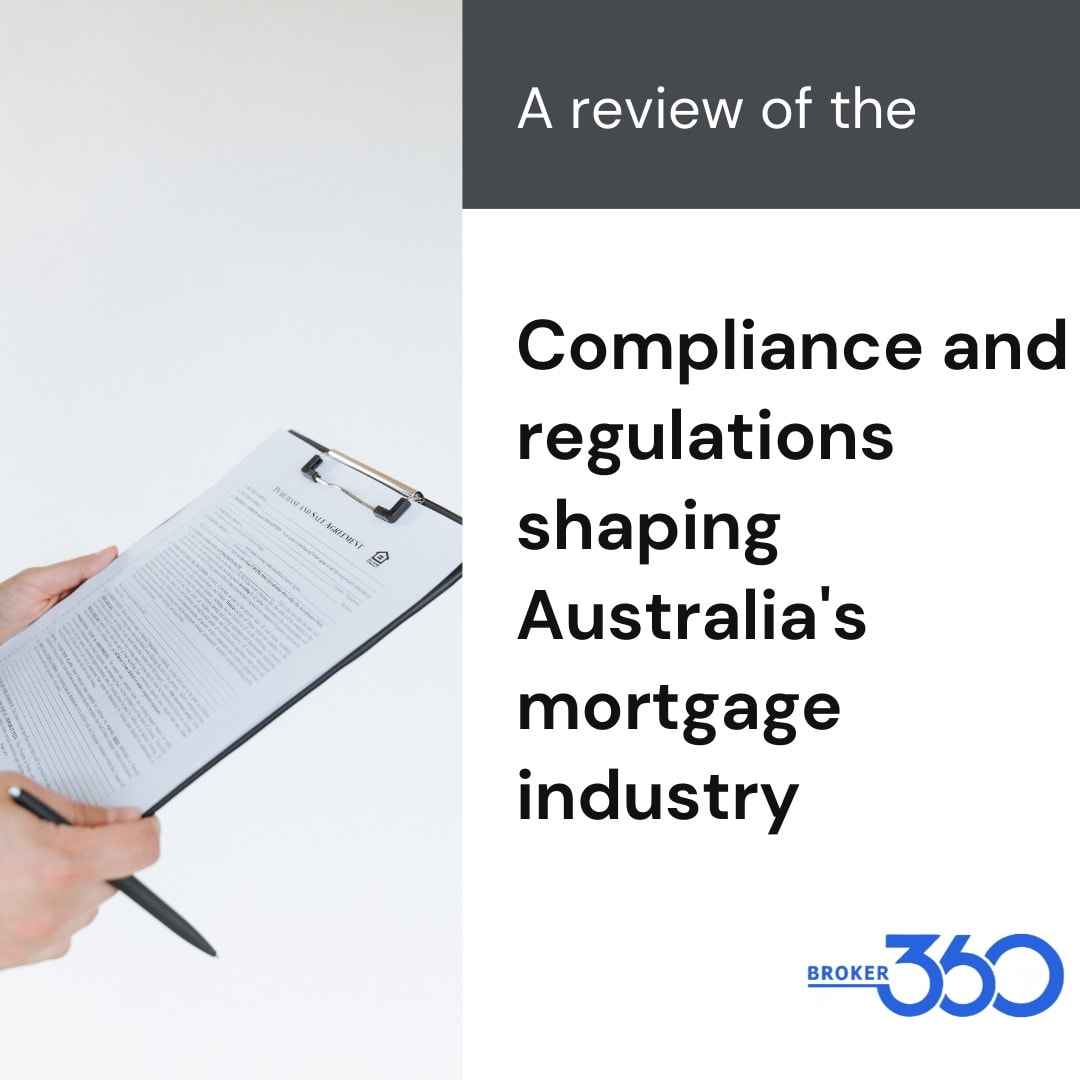Need guidance? Enjoy unlimited support from 6AM-6PM and a 24-hour lodgement services. 📞 Call 08 6722 8806

- Broker360
- No comment
- December 16, 2024
The Australian mortgage industry is subject to a complex web of regulations and compliance requirements that aim to protect both borrowers and lenders.
Staying informed about the latest regulatory updates is crucial for mortgage brokers to operate within the boundaries of the law and maintain trust with their clients.
In this blog, we’ll explore the recent regulatory changes in the Australian mortgage industry and their impact on mortgage brokers.
Key Regulatory Updates
1. Responsible Lending Laws: In November 2021, the Australian government repealed the responsible lending laws, aiming to simplify the lending process and boost credit availability. While this change may make lending more accessible, it also places added responsibility on mortgage brokers to ensure they provide appropriate loans to clients.
2. Best Interests Duty: Introduced in early 2021, the Best Interests Duty requires mortgage brokers to act in the best interests of their clients when providing credit assistance. Brokers must demonstrate that the loans they recommend are suitable for their clients’ needs and financial situations.
3. Licensing Requirements: Mortgage brokers in Australia are required to hold an Australian Credit License (ACL) or be authorized as a credit representative under an ACL holder. Compliance with licensing requirements is essential to continue operating legally.
4. National Consumer Credit Protection Act (NCCP): This legislation governs credit providers, including mortgage brokers. It outlines obligations related to disclosure, responsible lending, and dispute resolution.
Impact on Mortgage Brokers:
These regulatory updates have several implications for mortgage brokers:
1. Increased Responsibility: Mortgage brokers now have a heightened responsibility to ensure that the loans they recommend align with their client’s best interests and financial circumstances.
2. Compliance Obligations: Brokers must stay updated with compliance obligations and follow industry best practices to meet legal requirements.
3. Professional Development: Continuous professional development and training are essential to keep up with evolving regulations and ensure compliance.
4. Ethical Practices: Brokers should prioritize ethical practices and transparency in their dealings with clients to build trust and demonstrate compliance with regulatory standards.
Best Practices for Compliance:
To navigate these regulatory changes successfully, mortgage brokers should consider the following best practices:
1. Stay Informed: Regularly monitor updates and changes to regulations and industry standards.
2. Documentation: Maintain detailed records of client interactions, recommendations, and lending processes to demonstrate compliance.
3. Compliance Training: Invest in ongoing compliance training and professional development to stay up-to-date with best practices.
4. Client Communication: Maintain clear and open communication with clients, explaining the lending process and any potential risks.
5. Regular Audits: Conduct internal audits and reviews to ensure compliance with all regulatory requirements.
6. Licensing Requirements: Ensure that you and your brokerage meet all licensing requirements and renew licenses promptly.
In conclusion, compliance and regulations play a critical role in the Australian mortgage industry, and mortgage brokers must stay informed and compliant to operate successfully.
At Broker360, we not only help brokers stay on top of their compliance obligations but also support borrowers in understanding their rights and navigating the lending process.
Our expert team offers tailored advice and resources to ensure all stakeholders meet regulatory requirements while achieving their financial goals.
Contact us today to learn how we can assist you with compliance and beyond.


